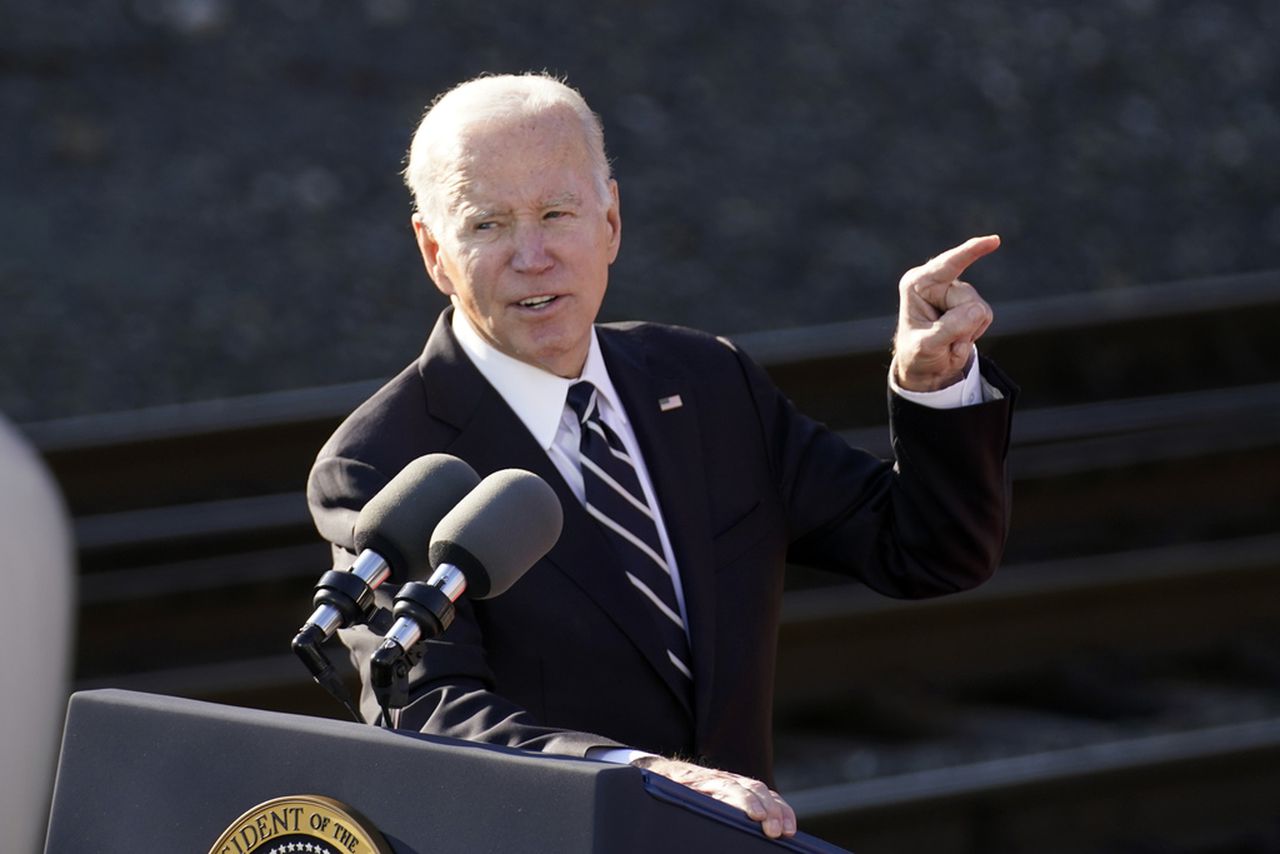Civil rights leaders urge Biden to back reparations study ahead of Selma visit
Civil rights leaders gathered Saturday outside a historic church in Selma to urge President Joe Biden to sign an executive order to study reparations for Black Americans.
The renewed calls for Biden to act occurred during panel discussion outside the Brown AME Church in downtown Selma where foot soldiers gathered five decades ago during the height of the civil rights movement.
The president will visit Selma on Sunday to commemorate the 58th anniversary of Bloody Sunday, the violent eruption between police and civil rights marchers at the Edmund Pettus Bridge on March 7, 1965.
“We want a president who will sign H.R. 40,” said Cliff Albright with Black Voters Matter, advocating for Biden to sign a resolution establishing a commission to study what reparations and appropriate remedies for slavery and subsequent economic discrimination against Black Americans could look like.
“I want a president saying, ‘Congress, you are taking too long, so how about I sign an executive order,’” Albright said. “Sign a bill and use the power because we put him into office to deliver for us.”
Damon Hewitt, executive director of Lawyers’ Committee for Civil Rights, said that H.R. 40 simply establishes a commission to study the “feasibility of reparations.”
“That’s all it is,” he said. “We’re not asking for cash falling out of the sky. We are asking to be taken seriously … for Black struggle, Black joy to be taken seriously.”
U.S. Rep. Sheila Jackson Lee, a Democrat from Texas, is the sponsor of H.R. 40. She also advocated for Biden to take action, as she has for nearly a year.
She said the importance of establishing a reparations commission includes examining how cities like Selma can be assisted. She noted that the $1.7 trillion bipartisan infrastructure package, adopted in 2021, could help transform Selma, a city panelists today called a “cradle to democracy.”
“I believe an executive order is an appropriate vehicle to go forward in beginning the assessment and analysis so we can find out what we can do in Selma,” Jackson said.
Versions of H.R. 40 have been around since the late 1980s, but the issue only gained traction in recent years and garnered the support of Democrats in Congress. The resolution passed out of the House Judiciary Committee in 2021, but it has not come up for a vote in the full House or Senate.
The measure does not have Republican support. In Alabama, the only member of Congress to support H.R. 40 is U.S. Rep. Terri Sewell of Birmingham, the state’s sole Democratic federal lawmaker.
Civil rights activists were hopeful Biden would sign an executive order in support of H.R. 40 ahead of Juneteenth last year. That date, June 19, is significant because it’s a new federal holiday, first recognized in 2021, to commemorate the emancipation of enslaved Black Americans.
White House advisors have held meetings and listening sessions with H.R. 40 advocates, but Biden has yet to commit to executive action.
Albright and others, speaking at the panel hearing in Selma, said that reparations are often misunderstood and confused with issues like Affirmative Action and Social Security.
He said the federal government has a role to play in devaluing cities like Selma, citing a decision by the military in 1977 to close Craig Air Force Base.
“Those who live here will tell you the most devastating thing to happen is when the federal government closed the air force base,” Albright said. “The federal government has a role to play in investing in Selma.”
Nkechi Taifa, founder and director of the Reparation Project, said that reparations are not “as simple as cutting a check,” and argued that no amount of money can compensate for slavery.
“That’s why we call it a negotiated settlement,” Taifa said. “It’s not prescribed by the culpable party. It is something the injured party says is what we want. And it’s negotiated.”
